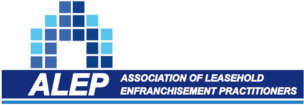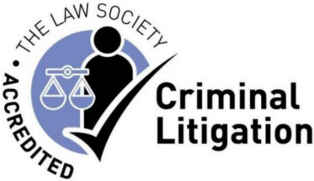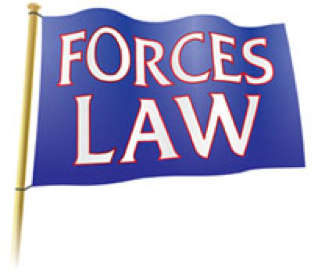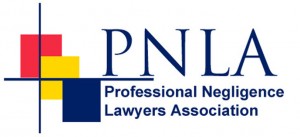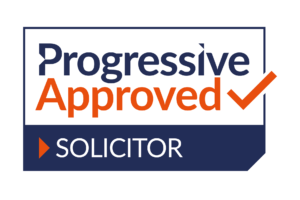What is the procedure for buying the freehold of my block?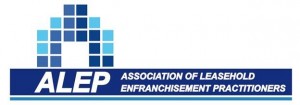
If you currently own the lease on a flat but are thinking about buying the freehold instead, you need to be aware of the process for doing so. Freehold purchase (or leasehold or collective enfranchisement as it is often known) is a notoriously complicated area of law, but with a bit of understanding about the system, there’s no reason why your bid to own the freehold shouldn’t go as smoothly as it possibly can.
The whole process usually takes approximately a year but this can be shorter or longer depending on the particulars of your situation.
NB if your freeholder wants to sell the freehold – then he must offer it to the leaseholders first – and the process is different.
Click here to read about the so called Right of First Refusal
Your Collective Enfranchisement – FREE initial phone advice from our specialist solicitors
We hope that the information below will help you if you’re considering buying the freehold of your block. But remember, we always offer FREE initial phone advice on all in aspect of law – including collective enfranchisement.
So if you have a question, and simply don’t understand something or are worried about some aspect of enfranchisement, call our team on FREEPHONE 0800 1404544 and let us put your mind at rest.
Are you Eligible to Start the Collective Enfranchisement Process
For a freehold purchase [often referred to as leasehold or collective enfranchisement] effort to be successful, a certain number of participating leaseholders are required.
A minimum of 50% of the owners all flats in the block will need to participate, although you can get moving with the enfranchisement before this threshold is reached, so long as the 50% is eventually reached. Without that 50% participation rate, your freeholder can refuse to sell the freehold to you. This is particularly important as many potential participants won’t join or commit until they know for certain that the enfranchisement will go ahead. This is the sort of chicken-and-egg situation which needs ironing out in the very early stages.
However, it’s worth bearing in mind that the whole process of collective enfranchisement is often much simpler in smaller blocks. So if you live in a small block of, say, four flats – you only need one other leaseholder to join in. On the other hand if your particular block has 100 flats – getting another 49 individual lease owners to agree to join in, and then to keep them on board throughout the process, is far from simple.
Worried about a missing freeholder?
This doesn’t present a particular problem. As with an absent freeholder and lease extension, the answer is an application to court for a Vesting Order. Our team can help you with that.
Click here to read about enfranchisement with a missing freeholder.
Enfranchisement – starting out? Why not send out an invitation
Essentially, the process involved with freehold purchase of your block is best started when a significant number of leaseholders have decided that they would like to buy the freehold on the block of flats.
What constitutes a significant number will differ from case to case, but at this early stage it’s always a good idea to draft a formal invitation to be sent to all leaseholders, in which you can propose the collective enfranchisement, asking them to join in with the project.
This invitation is not a legal requirement as such, but is a good way to start the process and contact all leaseholders quickly as well as keeping the contact formal, which will put many people’s minds at ease with regards to the financial and legal aspects of the purchase.
Freehold purchase – What to include in your invitation
The initial document should detail;
- what is proposed
- the benefits of freehold acquisition and taking over the management of your block
- the information regarding the deadline for joining
- the deposit that would need to be paid
- cost estimates for the whole project should be included, and it must be clearly stated that these estimates are just that — estimates — and that the final cost could vary and will only be known once the whole process has been completed.
Ensuring that everyone has the same formal notice at the same time will also ensure that potential conflicts are avoided, with every owner being treated in the same way. Naturally, there are instances where this might not be a good idea, for example in a case where one or two of the flats are occupied by friends or relatives of the freeholder, who you think might prove difficult and where you run the risk of that freeholder being provided with confidential information regarding the potential collective enfranchisement.
Signing up for Collective Enfranchisement
A sign-up form should be included with the formal invitation, kept brief and simply stating that the responding leaseholder wishes to take part in buying a share of the freehold of the block of flats should the project go ahead and get underway.
This sign-up form is not legally binding, and this should also be made clear. It simply registers the leaseholder’s interest and intent to participate in a collective enfranchisement project should it happen.
Enfranchisement – holding a residents meeting?
It might also be a good idea to arrange a residents’ meeting for those who are still unsure or undecided, allowing them to ask further questions and obtain more information before committing. This can often spur people into joining and signing up.
If your block is a big one, and the sums involved will therefore be larger and the project trickier, it’s well worth considering getting a specialist collective enfranchisement solicitor to attend that meeting – they will be able to offer advice from a legal basis and ensure that all of the information being provided is accurate. This will also provide peace of mind to the residents as they will be able to see that the information they’re receiving is accurate and provided by a specialist solicitor with plenty of experience in collective enfranchisement. Again, this can often sway many residents into joining the effort.
Collective enfranchisement – the importance of the participation agreement
At this stage it’s also well worth considering drawing up an enfranchisement participation agreement, especially if your block is a bigger one. The participation agreement is a binding contract between you and your fellow leaseholders who want to take a share in buying the freehold of your block.
Our solicitors can draft your participation agreement for you
Click here for more information on how the participation agreement works and what you should think of including in it.
Valuing the Premium
The premium is the price you are going to have to pay your freeholder to compensate them for the purchase of the freehold. There is a complex formula to calculate the right level of premium – we always advise it is essential that you appoint a specialist lease extension surveyor make sure you get the right value for that premium and don’t overpay.
Click here to find out more about our panel of specialist lease extension surveyors. We are happy to introduce you to one of them local to you, and to instruct them on your behalf if you wish
The Initial Enfranchisement Notice
Once you have assembled a group of tenants who are willing to purchase the freehold and qualify to do so, you can then set about claiming the right.
The first step in the process is the leaseholders serving the required written notice on the freeholder that they wish to buy their freehold from him or her. This is known as an Enfranchisement Notice, or Initial Notice, and effectively begins the legal process.
It informs the freeholder that the leaseholders participating in the enfranchisement process are compelling him or her to sell and also contains the proposed offer for the freehold and for other ‘losses’ incurred by the freeholder.
Normally, tenants appoint a nominee purchaser to carry out on their behalf (and the identity of this purchaser must be detailed in the Initial Notice), but it’s also possible for them to form a limited company for the purpose of the buy-out.
Getting the initial notice signed properly
The Initial Notice must be signed by each of the participating leaseholders.
In particular you need to be aware if any of the participating flats is owned by joint tenants – because both of them will need to sign the notice. It is also important that the Initial Notice is not signed by an agent, but by the leaseholder or leaseholders themselves. Getting that wrong can invalidate the freehold purchase notice entirely.
Don’t forget – if the Initial Notice is not signed properly or contains errors, then your bid to buy your freehold will fail.
Freeholder response
Strict deadlines apply to the next couple of stages, so you should keep a timeline of the process at your end to ensure that everything is kept on track in order to avoid any unnecessary delays.
The freeholder has a maximum of two months to respond to the Enfranchisement Notice and if he or she fails to respond within this time frame, those making the application to purchase the freehold are legally entitled to buy the freehold of that property at the price they offered in the Enfranchisement Notice.
Counter notice
Usually, a freeholder will serve a Counter Notice, in which they acknowledge that you wish to buy the freehold, or [although this is fairly unusual] states his or her belief that the applicants do not qualify to buy the freehold through the enfranchisement process – in which case the freeholder must also make clear the reason why they believe this to be true].
If your freeholder accepts you have the right to buy the freehold of your block, your offer must either be accepted, or a counter offer put forward.
Don’t be alarmed if this counter offer is much more than you offered in your Initial Notice — this is quite normal and is a tactic many freeholders use in order to scare off those hoping to buy the freehold.
Collective enfranchisement – entering into negotiations
If your freeholder puts forward a counter offer, negotiations will begin. In this instance, our solicitors strongly recommend that you appoint a specialist surveyor [and it must be one of the relatively small number of surveyors with plenty of leasehold enfranchisement experience] to negotiate with the freeholder’s surveyor over the freehold valuation. We can help you with that – we have developed a panel of surveyors with plenty of collective enfranchisement valuation experience – and can, if you wish, appoint one of our panel surveyors on your behalf for the valuation.
Collective enfranchisement – the main cause of delay?
Often, the longest delays is simply trying to organise, and to keep organised, enough people to qualify for buying the freehold. Don’t underestimate how hard this can be – especially if your block is a large one as this means you’re going to need a correspondingly large number of your fellow leaseholders to join together to qualify for enfranchisement in the first place.
Buying your freehold? Do take care
Enfranchisement should not be undertaken lightly, and mistakes can often be made by groups of enthusiastic leaseholders – which can be seized upon by freeholders employing strong legal teams.
So to ensure your chances of successfully enfranchising your block are as great as they can possibly be, it is really important that you appoint your own specialist enfranchisement solicitor who has plenty of experience in working with the freehold enfranchisement process.
The Need for a Specialist Collective Enfranchisement Solicitor
The process of exercising your freehold right to buy is a complex one and you are going to need the advice of a solicitor who specialises in lease extension and freehold purchase work, and later of a specialist surveyor for you enfranchisement valuation.
There are well over 180,000 solicitors in England and Wales, but only a handful, like our expert team, regularly carry out enfranchisement.
Our team can provide the specialist advice about leasehold enfranchisement you need. The five strong team does nothing but lease extension and lease enfranchisement and is one of the most specialist teams in the country. We deal with around 450 new lease extension and collective enfranchisement applications every year – and have helped thousands of leaseholders like you.
And if following the enfranchisement process, things go sour between the new freeholders, we also represent clients nationwide with Shared Freehold Disputes
How long will it take to buy the freehold of my block?
In the very simplest of leasehold enfranchisement cases, the whole process takes around six months from start to finish, but it can be made more complicated depending on the leases owned by the tenants and whether or not the landlord objects to the action. For larger blocks, a year or more is common.
Following the Initial Notice, the landlord is compelled to respond with a Counter-Notice, which can either accept or reject the tenants’ claim. If rejected, the tenants will have to appeal to a Court to have the decision overruled. The terms of the handover must be agreed once the right of enfranchisement has been accepted, and the nominee purchaser will be liable for the costs of the freeholder.
If I choose not to take part in the enfranchisement, can I exercise my right to buy a share of the freehold at a future date?
No – if you miss out in the original enfranchisement, you have no right to buy a share your freehold in future. But you may well find that the existing freeholders are more than happy to sell you a share – because they will charge a premium and can then divide the cash between them.
But because that is an entirely voluntary arrangement and there is no way of forcing the freeholders to sell you a share of the freehold, there is no set method for valuation of the premium you will need to pay them. But the starting position may well be a proportionate share of the price that the existing freeholders had to pay to buy the freehold themselves. But you may find, particularly if your flat has gone up in value since the original enfranchisement, or standards of maintenance has significantly improved since then, that the current freeholders will look for higher price to sell you that share of the freehold.
Enfranchisement Disputes with Your Freeholder – How a Tribunal Can Help
If a price cannot be agreed, the leaseholders can take the case to the First Tier Residential Property Tribunal [which before 1st July 2013 was known as the Leasehold Valuation Tribunal or LVT], which will decide on the valuation of the property and the price to be paid for buying the freehold. Fortunately tribunal applications are relatively rare when it comes to enfranchisement.
Again there is a strict timetable for this – it must be done no sooner than two months and no later than six months after the Counter Notice was due, or you will be deemed to have dropped your claim and you will have to wait a year before you can begin the freehold purchase process again.
It can take three months to get a date for a Residential Property Tribunal hearing, and after it takes place, the formal process of enfranchising your block begins. Things should then start to move more quickly, with the freeholder having to prepare a contract of sale and providing it to the purchasers within 21 days of the Tribunal serving the notice of its decision. An appeal can be made by either party to the Lands Tribunal, but the First Tier Residential Property Tribunal will need to provide written permission for this to occur.
Click here for more information on how the First Tier Property Tribunal works.

